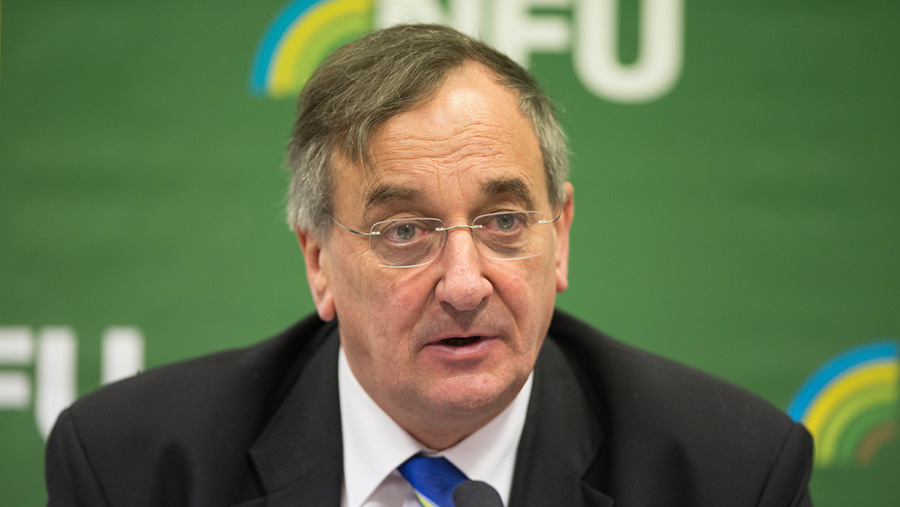New year brings new hope for agriculture, say industry leaders
 Meurig Raymond © Tim Scrivener
Meurig Raymond © Tim Scrivener Farm leaders have spelled out their hopes for agriculture during 2017 – including opportunities for the industry post-Brexit.
NFU president Meurig Raymond: “There is no doubt in my mind that 2017 will be an historic, unique opportunity to present a new deal for farming in Britain.”
Mr Raymond said he expected 2017 to be “busy”.
See also: Defra minister outlines Brexit plan for 2017
The NFU would reveal its expectations for a post-Brexit domestic farm policy early in the new year as part of its response to proposals expected from Defra on the industry’s future, he said.
“This must aim to create a policy that delivers world-class farming that is supported by a world-leading science base to ensure our post-Brexit future is profitable, competitive and productive for us all.”
Tumultuous 2016
Mr Raymond said it was fair to say 2016 had been a tumultuous year for the farming industry – as it had been for the country.
“We have seen continued extremes in market returns for many sectors, not least dairy, leaving family businesses staring over a precipice one moment to be replaced by recovering prices the next.
“Alongside the economic realities the historic EU referendum looks likely to be a game changer for many as over 40 years of European policy is replaced by farm policy controlled at a UK level.
“While the theme of 2016 has been one of growing uncertainty, for the sake of farming, 2017 must provide greater certainty and confidence.
“I’ll be looking to the government, as farmers look to the NFU, to provide this.”
The Tenant Farmers Association (TFA) highlighted the need for a better functioning food supply chain as a basic element of the UK’s post-Brexit planning.
Dysfunctional supply chain
TFA chairman Stephen Wyrill said there was growing recognition the UK food supply chain was dysfunctional – and farmers too often bore the brunt of the problems this created.
“Poor returns, last-minute changes in orders and specifications, unfair competition from abroad and poor labelling are all contributing to the pressures at farm level.
“Sadly, well-meaning initiatives aimed at improving supply chain relationships on a voluntary basis have failed to have the necessary traction across the board.”
It was important to “deepen and broaden” the powers of the Groceries Code Adjudicator to address problems that extended beyond the retail supply chain for groceries, said Mr Wyrill.
Brexit challenge
In Wales, NFU Cymru president Stephen James said Brexit would be one of the biggest challenges facing the industry – but leaving the EU meant opportunities too.
It was a “unique opportunity” to shape and develop policies that were fit for purpose, forward thinking and promoted a productive, progressive and profitable farming industry.
In the short term, the single most important issue for Welsh agriculture was securing the best possible access to European markets, said Mr James.
Domestic markets must also deliver for Welsh agriculture, he added.
“We are committed to regular engagement with the major retailers and food buyers to ensure that Welsh food is front and centre on retail shelves and in the food service sector.
“I am pleased with our successes in 2016, on lamb in particular, but recognise that there is much more to do to improve relationships and deliver better returns across the entire supply chain.”
